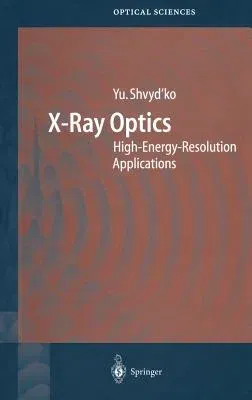Yuri Shvyd'ko
(Author)X-Ray Optics: High-Energy-Resolution Applications (2004)Hardcover - 2004, 25 June 2004

Qty
1
Turbo
Ships in 2 - 3 days
In Stock
Free Delivery
Cash on Delivery
15 Days
Free Returns
Secure Checkout

Part of Series
Springer Optical Sciences
Part of Series
Springer Series in Optical Sciences
Part of Series
Springer Series in Optical Sciences Springer Series in Optic
Print Length
406 pages
Language
English
Publisher
Springer
Date Published
25 Jun 2004
ISBN-10
3540214844
ISBN-13
9783540214847
Description
Product Details
Author:
Book Edition:
2004
Book Format:
Hardcover
Country of Origin:
DE
Date Published:
25 June 2004
Dimensions:
23.39 x
15.6 x
2.39 cm
ISBN-10:
3540214844
ISBN-13:
9783540214847
Language:
English
Location:
Berlin, Heidelberg
Pages:
406
Publisher:
Series:
Weight:
766.57 gm